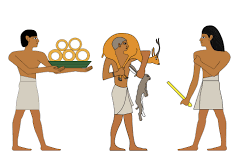Egypt Becomes A Member Of The BRICS New Development Bank
Joins the original five members plus Bangladesh and UAE in acquiring a position within the BRICS bank equity
In a sure-fire move that can be expected to usher in Egypt as a full member of the BRICS grouping, Cairo has taken an equity position within the New Development Bank (NDB). Previous equity was divided equally among the initial members: Brazil, Russia, India, China, and South Africa. It makes Egypt the first new member of the proposed expanded BRICS+ along with Bangladesh and the UAE.
The New Development Bank was set up by BRICS nations on the basis of the intergovernmental agreement signed at the sixth BRICS summit in Fortaleza in July 2014.
The NBD approved Egypt’s accession in December 2021, while in September 2021 a similar decision was made regarding the United Arab Emirates (UAE), Uruguay and Bangladesh. With the exception of Uruguay, they all became members of the bank this month after jumping through the necessary hoops.
The bank’s goal is to finance infrastructure projects and sustainable development projects in BRICS member states and developing countries. The bank previously received an “АА+” international credit rating from Fitch Ratings and S&P Global Ratings, allowing it to effectively attract long-term funding on international and local capital markets.
Since its founding, the bank has approved more than 90 projects totaling US$32 billion in support of such areas as transportation, water, clean energy, digital and social infrastructure, as well as urban construction. Several other countries have also expressed interest in joining the BRICS grouping – an overview of these can be viewed here.
Egypt: Fast Facts

GDP: USD404 billion
GDP Per Capita: USD3,880
2022 Growth Rate: 6.6%
Population: 104 million
Egypt is an energy and agricultural play, with important exports including petroleum and petroleum products, followed by raw cotton, cotton yarn, and textiles. Raw materials, mineral and chemical products, and capital goods are also exported. Among agricultural exports are rice, onions, garlic, and citrus fruit. Egypt is a member of the Arab Trade Zone which also includes Algeria, Bahrain, Iraq, Jordan, Kuwait, Lebanon, Libya, Morocco, Oman, Palestine, Qatar, Saudi Arabia, Sudan, Syria, Tunisia, the UAE and Yemen. Egypt is also a member of the African Continental Free Trade Agreement (AfCFTA) which reduces tariffs to zero on 98% of all intra-African trade.
Egypt is a dialogue partner to the Shanghai Cooperation Organisation which includes China, India, Kazakhstan, Kyrgyzstan, Pakistan, Russia, Tajikistan and Uzbekistan as full members, while Afghanistan, Armenia, Azerbaijan, Bahrain, Belarus, Cambodia, Kuwait, Maldives, Mongolia, Myanmar, Nepal, Saudi Arabia, Sri Lanka, Turkiye, Turkmenistan, Qatar and the United Arab Emirates are all in various status as SCO dialogue partners and observers. Egypt’s most important trading partners include China, the United States, Italy, Germany, and the Gulf Arab countries.
The development of BRICS was touched upon during this week’s meetings between President’s Xi and Putin in Moscow; and was mentioned as part of their “Joint Comprehensive Strategic Development Plan For A New Era.” Xi had mentioned to Putin that changes were coming – with the immediate announcement of Egypt’s joining BRICS a signal the world order maybe changing rather more rapidly than initially thought.
Egypt is also negotiating a Free Trade Agreement with the Eurasian Economic Union.
Egypt’s accession to the BRICS means the trade group now has both north and south access to the African Union markets with South Africa as the southern member.
Related Reading





